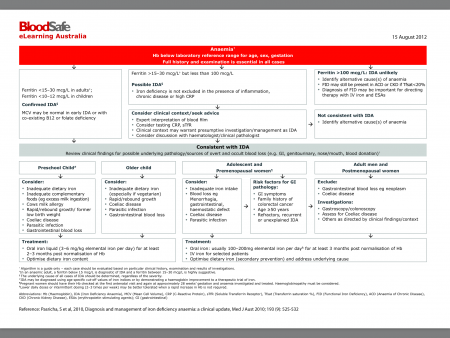
Why do I have low Iron?
Iron deficiency is one of the most common causes of fatigue in women of child bearing age. Whilst the treatment of iron deficiency can often alleviate symptoms, it is very important to find out what is the actual cause of iron deficiency so a serious disease is not missed. In this blog, I would like to take you through what goes on in a doctor’s mind when we search for the cause of your iron deficiency.
The principle is simple. Iron storage is equal to iron input minus iron usage minus iron output. Here is a simple algorithm that I used in medical school.
IRON STORAGE = INPUT – USAGE – OUTPUT
So when patients present with iron deficiency, we go through these 3 categories to search for your cause of iron deficiency:
- INPUT: Do you have suboptimal iron intake or poor absorption?
- USAGE: Is your body needing more iron than usual?
- OUTPUT: Are you losing iron somewhere?
Suboptimal Iron Intake

Do you have suboptimal iron intake? Are you a Vegetarian or Vegan? Do you have less than 2 servings of red meat a week or have a diet poor in iron? If you have good iron intake, do you have an absorption problem such as coeliac disease that stops your iron from been absorbed into your body? Or are you taking medicines such as anti reflux therapy or excessive coffee or tea that also reduces iron absorption?
Increased Iron Usage
Do you have an increased iron demand because of pregnancy or breast feeding? For a child or young adult, they can be going through a period of rapid growth phase that increases iron usage.
Increased Iron Loss
The commonest reason for iron deficiency is blood loss due to periods.
You can also lose iron through gastrointestinal blood loss. This is often unnoticed. Gastroentestinal blood loss can be caused by colon cancer or polyps as well as gastritis or stomach ulcer.
Are you having regular blood donations? Have you had recent surgery with excessive peri-operative bleeding?
As you can see, there are many possible causes of iron deficiency. To find out the cause of your iron deficiency, we need to take a full history, including diet and medication use, and do necessary examination to search for clues. And depending on the history and examination, sometimes we need to go a step further and do further investigations such as an endoscopy or colonoscopy to rule out sinister causes such as colon cancer or inflammatory bowel disease. Here are a few clues that would direct us to refer for endoscopy or colonoscopy:
- Gastrointestinal symptoms
- Family history of bowel cancer
- Age > 50
- Adult men
- Postmenopausal women
- Refractory, recurrent or unexplained iron deficiency anaemia.
For people who are after a more complicated (I mean comprehensive) algorithm than my notes in med school, here is a link to one.
If you have or suspect that you may have iron deficiency, it is important to see a doctor to find the cause. Proper treatment for iron deficiency will not only make people feel better, proper assessment can also identify important causes that need attention.
In our next blog, “I have iron deficiency. How do I replace iron?”, I will talk about different ways to manage iron deficiency.
Call 3257 0841 or book online if you would like to make an appointment to see one of our doctors to discuss iron deficiency.

Dr. Dora Lee
FRACGP MBBS (UQ) B PHTY (UQ)



